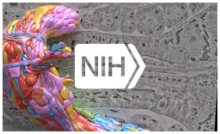
A virtual Congressional Briefing today will feature a panel of speakers to share information on the necessity of brain donation.
The need for donated human brain tissue is more critical than ever – neuroscientists are making great strides in the search for treatments and cures for brain disease and the NIH BRAIN Initiative is entering a phase that requires significant supplies. In celebration of Brain Awareness Week (March 14-20), the American Brain Coalition (ABC), a BRAIN Initiative Alliance participant, will be partnering with the Congressional Neuroscience Caucus for a virtual Congressional Briefing to share information on the necessity of brain donation.
The briefing, scheduled for today from 2:00 PM – 3:00 PM ET, will feature remarks and discussion from:
-
Special Guest, Representative Earl Blumenauer (D-OR), Co-Chair, Congressional Neuroscience Caucus
-
Walter Koroshetz, MD, Director, National Institute of Neurological Disorders and Stroke, National Institutes of Health
-
John Ngai, PhD, Director, NIH BRAIN Initiative, National Institutes of Health
-
Kathy McKenzie, Patient Advocate
-
Moderator: Tish Hevel, CEO, The Brain Donor Project
Registration for the webinar is free.
The areas of focus surrounding brain donations have been an ongoing topic of discussion and were recently raised with the BRAIN Neuroethics Working Group at their August 2021 meeting. During that portion of the meeting, the group explored possible incentives to diversify brain tissue samples used in neuroscience research. Meeting participants discussed ways to boost healthy brain tissue donations and the need for culturally relevant community engagement, especially with underserved populations. The NEWG also considered whether incentives for brain donation should scale to financial need and how to frame them. Lastly, the group proposed hosting a possible workshop to address broad ethical issues and solutions to collecting diverse brain tissue samples that truly represent society. For a detailed meeting synopsis, please view the meeting summary(pdf, 206 KB) and archived videocast.
